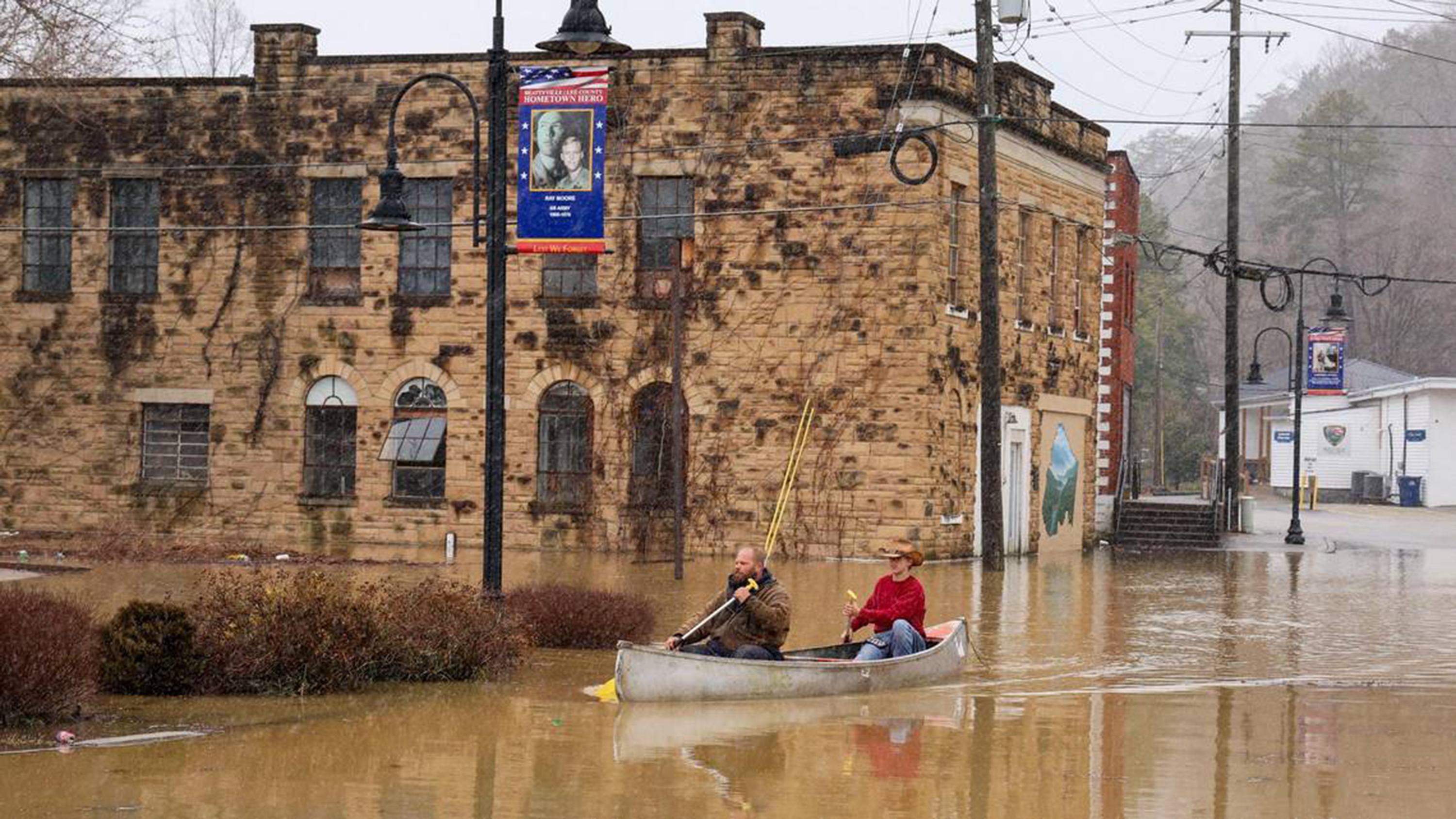'Stay off the roads': Winter storm warning as deadly floods strike Kentucky
Kentucky is battling devastating floods after another powerful winter storm hit the eastern U.S. over the weekend, leaving at least 10 people dead.

Another powerful winter storm hit the eastern U.S. over the weekend, causing widespread floods in Kentucky and leaving a number of people dead.
The storm killed at least nine people in Kentucky and one person in Georgia. However, officials expect the death toll to rise as rescue efforts continue this week, the weather website AccuWeather reported.
Kentucky governor Andy Beshear announced on Sunday (Feb. 16) that most of the state's deaths came from cars getting stuck in high water, The Associated Press (AP) reported.
"So folks, stay off the roads right now and stay alive," Beshear said, via AP. "This is the search and rescue phase, and I am very proud of all the Kentuckians that are out there responding, putting their lives on the line."
Since the storm began on Saturday (Feb. 15), more than 1,000 people have been rescued across Kentucky, but hundreds more are still stranded, AP reported. Beshear warned that more flooding was expected in the coming days, AccuWeather reported.
Related: Florida's snowfall record smashed as historic storm blasts Gulf Coast
The flooding is linked to a storm moving eastward across the country, while moisture is pulled up from the Gulf of Mexico.
Sign up for the Live Science daily newsletter now
Get the world’s most fascinating discoveries delivered straight to your inbox.
The National Weather Service warned in a social media post on Friday (Feb. 14) that repeating rounds of heavy rainfall on Friday night and Saturday was going to bring a high risk of life-threatening floods to Kentucky.
Western Kentucky and Tennessee were at particularly high risk of flooding because the ground in the region was already soaked from previous stormy weather, exacerbating the threat posed by increased rainfall from the latest storm, AccuWeather reported.
Rescuers used boats to reach some stranded individuals as photographs on social media revealed roads, cars and parts of buildings submerged in water.
The flooding caused counties in several of the affected states to declare a state of emergency over the weekend. For example, parts of Tennessee's Obion County went into a state of emergency after a river embankment failed and flooded the small town of Rives, AP reported. Rives is still in a state of emergency, at the time of writing.
"There will be mandatory evacuations in effect for the residents in Rives due to the rising water, no electricity, and freezing temperatures creating a life-threatening situation," Obion County mayor Steve Carr said in a statement on Sunday, via AP.
The U.S. will continue to be pummeled by stormy weather this week as forecasters predict a blast of Arctic air will bring record-breaking cold to the central states between Tuesday (Feb. 18) and Thursday (Feb. 20). The northern Plains will experience wind chills between -30 degrees Fahrenheit (-34 degrees Celsius) and -60 F (-52 C), while below zero wind chills are expected to reach as far southern Texas, Arkansas, western Tennessee and Kentucky, according to a National Weather Service forecast.

Patrick Pester is the trending news writer at Live Science. His work has appeared on other science websites, such as BBC Science Focus and Scientific American. Patrick retrained as a journalist after spending his early career working in zoos and wildlife conservation. He was awarded the Master's Excellence Scholarship to study at Cardiff University where he completed a master's degree in international journalism. He also has a second master's degree in biodiversity, evolution and conservation in action from Middlesex University London. When he isn't writing news, Patrick investigates the sale of human remains.
You must confirm your public display name before commenting
Please logout and then login again, you will then be prompted to enter your display name.









